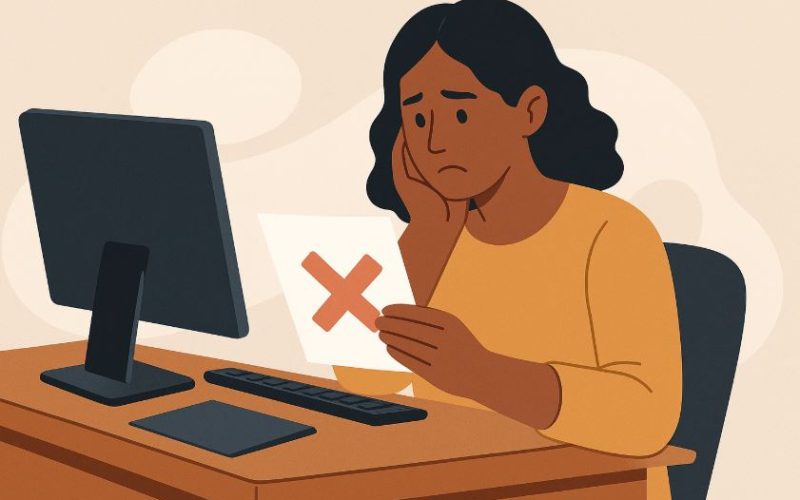For thousands of disabled individuals across the UK, the Personal Independence Payment (PIP) has been a lifeline. Yet, for many, that lifeline has been frayed by administrative errors, misjudged eligibility, and long-overdue compensation.
The Department for Work and Pensions (DWP), now under a new Labour Government, is under mounting pressure after confirming that significant mistakes were made in assessing and distributing PIP benefits.
As disability advocates, policy advisers, and government officials call for accountability, many are left wondering how this could have happened and what they need to do next.
This guide explores the full story behind the DWP PIP benefit errors, who is affected, how much is being paid, and what future changes are coming.
Why Has the DWP Paid Out £260 Million in Back Payments?

The government’s decision to release £260 million in back payments is not a goodwill gesture, it is a direct response to a wave of administrative oversights that left thousands of disabled claimants short-changed.
The DWP, alongside the Labour Government, has been forced to act amid increasing public scrutiny, media coverage, and criticism from disability organisations.
How the Compensation Unfolded?
In March 2025, figures showed that more than 308,000 PIP cases had been reviewed, leading to the massive payout. But this was just the beginning.
According to internal estimates and campaigners’ projections, over 325,000 cases still await full review. If the current averages hold, the total repayment figure could surge past £500 million.
Estimated Payouts Still to Come
Historical data suggests that around one in six cases reviewed resulted in compensation, averaging £5,200 per claimant. If this ratio continues, thousands could still receive substantial payouts.
The Government’s Position
A DWP spokesperson confirmed that the department is “fully committed to identifying claimants that are owed money and providing the financial support to which they are entitled as quickly as possible.” Ministers have promised that the voices of disabled individuals will shape all future changes.
Resource: https://www.birminghammail.co.uk/news/cost-of-living/dwp-announces-260-million-payments-32103220
Three Key Errors That Led to Massive Underpayments
Much of the underpayment crisis stems from three major issues, all of which were preventable and speak to broader systemic failures within the DWP.
1. Missing National Insurance (NI) Numbers
Many claims were dismissed or delayed due to the absence of a valid National Insurance number. Yet, having an NI number is not a legal requirement for PIP eligibility.
This error was particularly harmful to vulnerable populations such as migrants, those without permanent addresses, or individuals with complicated employment histories.
2. Transition Problems in Scotland (PIP to ADP)
When the Adult Disability Payment (ADP) replaced PIP in Scotland, numerous claimants were mistakenly marked as having lost their entitlement.
In reality, their conditions and needs had not changed. This glitch resulted in more than £13 million being repaid to around 4,700 affected Scots.
3. Incorrect Scoring in PIP Assessments
Errors in how claimants were scored, particularly relating to social support and face-to-face interaction needs, were some of the most damaging.
Following a 2016 tribunal and a Supreme Court ruling in 2020, the DWP was ordered to revise its interpretation of support needs, which had been far too narrow.
PIP Underpayment Summary
| Issue Type | Impact on Claimants | Region Affected |
| Missing National Insurance Number | Applications not processed | UK-wide |
| Transition to Adult Disability Payment | Incorrect loss of entitlement | Scotland |
| Errors in Assessment Scoring | Inaccurate point allocation, lost payments | UK-wide |
How People Manage DWP PIP Benefit Errors?

Despite £260 million already being distributed, the scale of the DWP’s failure is only now becoming fully visible. According to recent figures and policy reports, the number of cases still under review is staggering.
Projected Compensation Still Due
Of the 633,000 flagged cases, only about 308,000 have been assessed. Campaigners expect that roughly half of these remaining cases will be eligible for repayment, equating to another £250 million in likely compensation.
With average payments exceeding £5,000, the financial and emotional stakes are immense for those still waiting.
The Human Cost
For many, these errors meant choosing between food, rent, and medicine. The psychological toll is immeasurable. One former claimant shared how a lack of support forced him into debt, a common scenario among the wrongly assessed.
How Did the 2016 Tribunal and 2020 Supreme Court Ruling Impact PIP Claims?
The legal foundation for much of the current compensation stems from two major legal decisions.
The 2016 Tribunal Ruling
The ruling determined that the DWP was applying too narrow a definition of “social support” when evaluating a claimant’s ability to engage in face-to-face interactions. The court clarified that this support needed to be ongoing and reliable, not just occasional.
Supreme Court Affirmation in 2020
The Supreme Court upheld the tribunal’s decision, confirming that the DWP must revise how it scores this essential criterion. This ruling triggered an enormous retrospective review of past claims.
Overpayments vs Underpayments: What Do the Latest DWP Statistics Reveal?
The latest DWP fraud and error report for the financial year ending 2025 sheds light on both overpayments and underpayments.
Key Figures
| Payment Type | 2024 (FYE) | 2025 (FYE) | Main Cause |
| Overpayments | £90m | £330m | Functional Needs Errors |
| Underpayments | £80m | £40m | Award Determination Errors |
Overpayment Breakdown
Overpayments jumped significantly from 0.4% to 1.3%, equivalent to £330 million. Most were attributed to:
- Claimant errors (0.7%)
- Fraud (0.4%)
- Official DWP errors (0.2%)
Underpayments Reduced
Interestingly, underpayment rates dropped from 0.4% to 0.2%, the lowest level on record. All were due to award determination issues, showing some improvements in administrative accuracy but still highlighting past failures.
DWP PIP Benefit Errors and the Role of Claimant Functional Needs

The concept of “Functional Needs” was central to many overpayment cases in 2025. These occur when a claimant fails to report an improvement in their condition, whether deliberately or unintentionally.
Functional Needs in 2025
The error rate related to unreported improvement jumped to 0.8%, a statistically significant increase. This error alone accounted for over 60% of all PIP overpayments this year.
Claimant Error vs Fraud
While 0.5% of these cases were classed as claimant error, 0.3% were suspected fraud. Although not statistically significant individually, together they reveal a concerning trend of poor reporting and oversight.
What Are Experts and Disability Charities Saying About These Errors?
Disability organisations, former ministers, and experts have all spoken out about the crisis.
Ken Butler – Disability Rights UK
Ken Butler has called for immediate and complete repayments, stating that the government is morally and legally obligated to compensate all affected individuals without delay.
Ayla Ozmen – Z2K Charity
Ozmen warned that the delays and errors had created a real threat of “severe financial hardship.” She demanded transparency and speed from the DWP moving forward.
Sir Steve Webb – Former DWP Minister
Steve Webb acknowledged the repayment process is necessary but criticised how long it has taken, stating the process “should have been handled far more swiftly.”
What Is the Labour Government’s Response to the Crisis?
Since coming to power, the Labour Government has promised a comprehensive review of the PIP system and future reforms.
Ministerial Review Underway
Sir Stephen Timms, Labour’s new disability minister, confirmed that a review is ongoing. He stressed the importance of integrating the lived experiences of disabled individuals into all future policy.
Communication Commitment
The DWP will proactively contact those potentially owed money instead of waiting for individuals to raise claims. This is a crucial step in restoring trust in the system.
Will You Be Contacted or Should You Reach Out to the DWP?

This question is on many people’s minds. According to the DWP, if you are owed compensation, you will be contacted. But you can also take action now.
Proactive or Reactive?
While the DWP is reviewing historical cases and proactively contacting affected individuals, claimants can still contact them to ensure their case is on file.
Where to Get Help?
Charities such as Disability Rights UK and Z2K are available to help with appeal processes, claim reviews, and understanding your rights.
What Could Change in November 2026?
One of the biggest concerns now is the proposed changes scheduled for November 2026. These reforms could alter who qualifies for PIP and how claims are assessed.
Two-Tier System
The government has proposed that existing claimants will retain their current benefits, while new applicants face stricter eligibility. This has led to accusations of creating an “unfair two-tier system.”
Political Reactions
Backbench Labour MPs forced a partial U-turn, but campaigners remain sceptical. Many believe the proposed reforms will place disabled people at greater risk of being denied essential support.
Conclusion
The DWP PIP benefit errors have affected hundreds of thousands of people, often at their most vulnerable moments.
From administrative oversights to flawed assessments and unfair eligibility rules, these errors highlight the urgent need for a more humane, accurate, and just benefits system.
While the £260 million already paid out is a critical step, it is only the beginning. With over £250 million more potentially owed, thousands of claimants still await compensation, clarity, and closure.
As the Labour Government pushes for reform, it must put the needs of disabled people at the centre of policy decisions. Until then, claimants are encouraged to remain vigilant, review their case history, and reach out for support where needed.
The journey toward a fairer system continues, but with renewed awareness, accountability, and action, there is hope for meaningful change.
FAQs
How do I know if I’m eligible for the PIP repayment?
You may be eligible if your PIP claim was mishandled due to missing National Insurance information, errors during assessment scoring, or a flawed transition to ADP in Scotland. The DWP is currently reviewing past cases and will contact those affected.
When will I receive my compensation if I’m affected?
The DWP has stated they are working to repay all impacted claimants as quickly as possible. However, no fixed schedule has been confirmed yet.
Can I contact the DWP to check my case status?
Yes, you can contact the DWP directly. Additionally, disability rights organisations can provide assistance in verifying your claim status or submitting a complaint.
What was the average amount paid to affected claimants?
Based on current data, the average repayment is around £5,200, though individual amounts vary depending on the length and type of error.
Are existing PIP claimants affected by the 2026 reforms?
No, current claimants will be protected under the existing system. However, new claimants applying after November 2026 may face stricter eligibility requirements.
What caused the majority of PIP overpayments in 2025?
Most overpayments were caused by claimants not reporting improvements in their condition, classed as Functional Needs errors. These accounted for more than 60% of all overpayments.
Will disability charities help me navigate a repayment or appeal?
Yes, charities like Disability Rights UK and Z2K offer guidance and legal advice. They can assist with appeals, paperwork, and understanding your entitlements.









